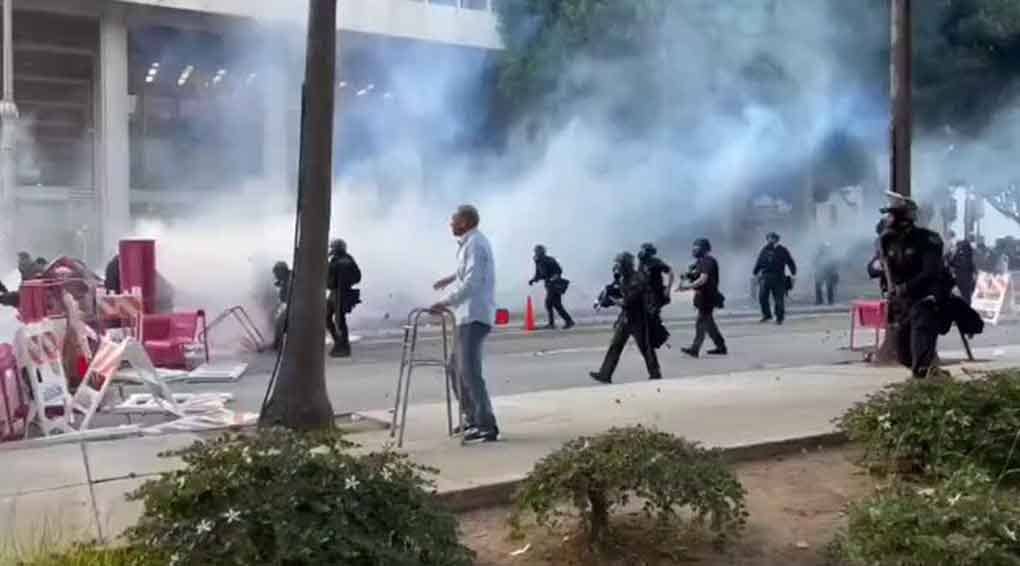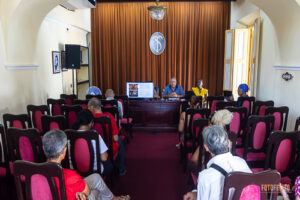Media double standards: the silence of the ‘haters’ in the face of protests in the U.S.

Simply because of geopolitical interests. The United States as a «beacon of democracy» cannot be questioned just like its enemies. Ideological hypocrisy, the same people who accuse Cuba of «repression» justify the heavy hand of the police in their country.

In the early hours of the morning, while checking the social networks, I stopped by Russia Today, a media outlet that usually approaches global events from a realistic point of view. One of its dispatches analyzed the recent tightening of immigration policies under Donald Trump’s administration, measures that sparked massive protests in the United States, with violent clashes between protesters and police, looting, and hundreds of arrests.
What was striking was not only the magnitude of the riots -which led the U.S. government to deploy more troops in conflict zones than it had in Iraq during the war-, but the complicit silence of the so-called “haters”: those profiles and media that, when it comes to Cuba, turn any isolated incident into a “social outburst” with full-page media coverage.
Why don’t they talk about “humanitarian crisis” or “failure of the model”? Example: If this happened in Cuba, how would the BBC, El País or Miami Herald headline it?
But since it is in the USA, Western media minimize the violence or attribute it to “isolated cases”, what to say about social networks. The “haters” (paid or right-wing related accounts) do not viralize with hashtags like #SOSUSA or #TrumpDictator.
Why this Silence?
Simply because of geopolitical interests. The United States as a “beacon of democracy” cannot be questioned in the same way as its enemies. Ideological hypocrisy, the same people who accuse Cuba of “repression” justify the heavy hand of the police in their country.
They know that information is a weapon. Those who control the narrative impose their truth.
Written by Enrique Tirse.




